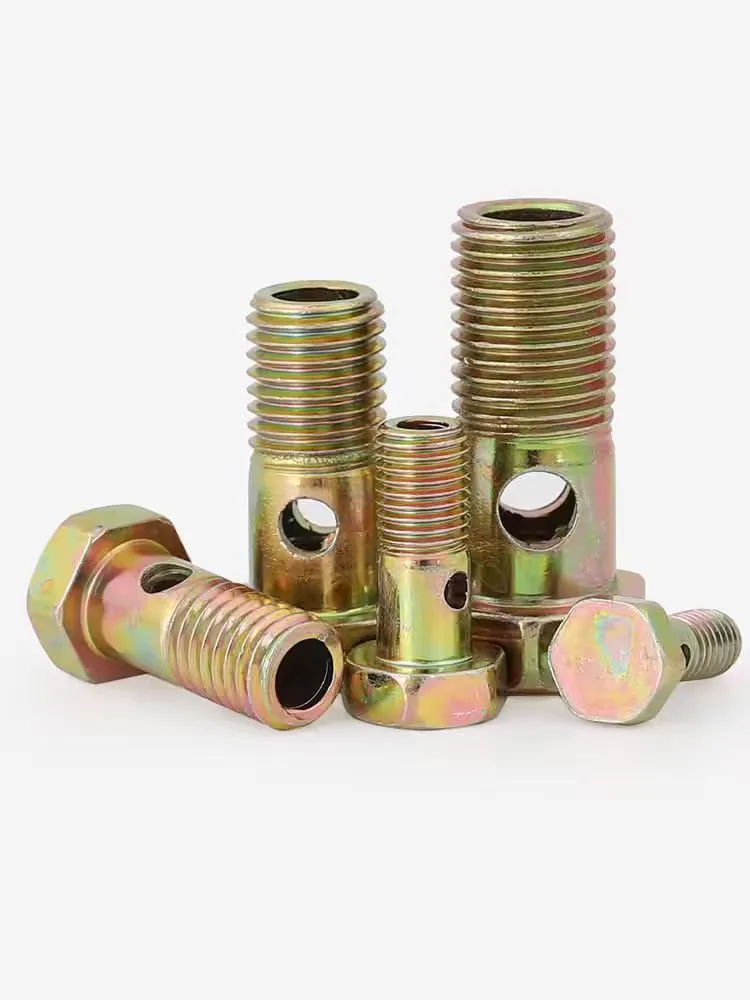

Threaded Flange Nut Design and Applications for Enhanced Structural Integrity
Des . 10, 2024 03:07 Back to list
Threaded Flange Nut Design and Applications for Enhanced Structural Integrity
Understanding Threaded Flange Nuts Features, Applications, and Benefits
Threaded flange nuts are specialized fasteners that are widely used in various industries due to their unique design and functionality. These nuts are characterized by an integrated flange that provides a larger surface area for load distribution and enhanced stability. This article will explore the features, applications, and benefits of threaded flange nuts, highlighting their importance in modern engineering and manufacturing.
Features of Threaded Flange Nuts
1. Integrated Flange One of the most distinctive features of a threaded flange nut is the built-in flange. This flange acts as a washer, helping to distribute the load over a wider area, which reduces the risk of damage to the workpiece. The flange also helps to prevent the nut from loosening due to vibrations.
2. Internal Threads Threaded flange nuts have internal threads that correspond to the size of the bolt or screw they are designed to fit. These threads ensure a secure and stable connection, making them suitable for a wide range of applications.
3. Material Variety Threaded flange nuts can be made from various materials, including steel, stainless steel, aluminum, and plastic. The choice of material depends on the specific application, environmental conditions, and required strength.
4. Surface Treatments Many threaded flange nuts undergo surface treatments such as galvanization, powder coating, or plating to enhance corrosion resistance and improve aesthetic appeal. This is particularly important in outdoor or harsh environments where exposure to moisture and chemicals can lead to deterioration.
Applications of Threaded Flange Nuts
Threaded flange nuts are used in numerous applications across different industries
1. Construction In construction, threaded flange nuts are often employed in structural steel assemblies, securing beams, columns, and other load-bearing components. Their load distribution capability helps maintain the integrity of structures.
threaded flange nut

2. Automotive The automotive industry uses threaded flange nuts in various parts, such as securing engines, suspensions, and body components. Their resistance to loosening under vibration makes them ideal for automotive applications.
3. Machinery In machinery manufacturing, threaded flange nuts are prevalent in the assembly of equipment and machinery components. They provide reliable connections between moving parts, ensuring safety and functionality.
4. Furniture and Appliances The furniture and appliance industries also utilize threaded flange nuts to assemble products securely. They can be found in items ranging from chairs and tables to major appliances like refrigerators and washers.
Benefits of Using Threaded Flange Nuts
1. Enhanced Load Distribution The flange design allows for improved load distribution, reducing the likelihood of deformation and failure of the mating surface. This characteristic is especially beneficial when dealing with softer materials.
2. Reduced Risk of Loosening The integrated flange reduces the risk of the nut loosening over time due to vibration or dynamic loads. This makes them a preferred choice in applications where safety and stability are critical.
3. Versatility Threaded flange nuts are available in a range of sizes, materials, and finishes, making them versatile for various applications. Whether used in heavy machinery or delicate furniture, there is a suitable option for every need.
4. Ease of Installation Threaded flange nuts can be easily installed using standard tools, which simplifies the assembly process and reduces labor time.
Conclusion
Threaded flange nuts are essential fasteners that play a critical role in the stability and safety of various assemblies. Their integrated flange design, material versatility, and practicality make them a popular choice across multiple industries. As technology advances and the demand for reliable connections increases, the importance of threaded flange nuts is only set to grow. Their unique features ensure that they remain a key element in engineering and manufacturing, contributing to the overall integrity of countless products and structures.
Latest news
-
Best Self Tapping Screws for Drywall - Fast & Secure Installation
NewsJul.31,2025
-
High-Strength Hot Dip Galvanized Bolts-Hebei Longze|Corrosion Resistance&Customization
NewsJul.31,2025
-
Hot Dip Galvanized Bolts-Hebei Longze Metal Products|Corrosion Resistance&High Strength
NewsJul.31,2025
-
Hot Dip Galvanized Bolts-About LongZe|High Strength, Corrosion Resistance
NewsJul.30,2025
-
High-Strength Hot Dip Galvanized Bolts - Hebei Longze | Corrosion Resistance, Customization
NewsJul.30,2025
-
Hot Dip Galvanized Bolts-Hebei Longze|Corrosion Resistance&High Strength
NewsJul.30,2025

